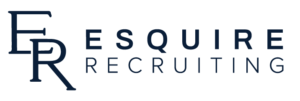Interacting with coworkers is, for the majority, highly encouraged by any individual that is a part of a firm. Building relationships with others in your office will increase productivity and help work to feel a little less like work each day… You know what we mean. However, where should you set boundaries? Find out here!
Boundaries at Work:
- Assess Yourself: In what areas do you feel you need boundaries? This may be… 1. At your desk: limiting interactions with others, 2. During lunch or breaks: needing time to relax without interruption of others, or potentially 3. Outside of work: understanding the importance of unplugging from your phone. Once you understand your own limits, you will be able to communicate them. And remember… these boundaries may change over time.
- Evaluate Others: There will be coworkers who you immediately hit it off with. Those who match your personality, humor, and appear to be instant friends. Make sure to analyze whether these people are helping you complete work, or are merely a distraction. There are also employees who may appear as frequent interruptions. It’s easy to set boundaries with both of these people! Try something along the lines of, “I’m happy to chat later but am super crammed right now. See you at lunch?” With this wording, you are not discrediting the importance of someone else, but instead adjusting the relationship by encouraging it during free time, instead of interfering with your productivity.
- Prepare: It is extremely important to actively set boundaries once they are identified. If you hold in irritation, this will only decrease the work you complete and add bottled up emotions. Practice the confrontation you will initiate beforehand, instead of waiting until the day you accidentally explode. Once you have adequately rehearsed a general message you wish to convey, plan a time to address the specific person.
- Remember, Boundaries are Okay! As long as you are speaking to others and setting restrictions with respect and patience, there is no reason to feel bad or nervous! At the end of the day, you enter your office each day with a goal of completing work. There is no reason someone should hinder you from doing so.
Boundaries Outside of Work:
- Know Your Limits: It is far too easy to begin a new job and feel the need to overachieve. Limit yourself! There is no need to engage in excessive overtime solely out of fear of disappointing your boss. Understand the importance of a good night’s sleep and a work-life balance.

- Set Them Clearly: Once you have identified your own need for boundaries, set them distinctly and stick to it! If your boundary is turning your work phone off by 10:00 p.m. make a strong effort to stick by your own rule. There may be a few exceptions, but you should for the majority stick to what you set!
- Use Your Time Off: Another way that many workers become exhausted is by allowing themselves to build up all of their time off for some point in the future where they can cash it all in. However, we encourage you to use your days off! The more you allow them to add up, the more you will fall into the routine of never rewarding yourself. Let yourself have a “you day” when you get the chance! You deserve it.
Always remember…you must implement a work-life balance. If your company does not allow you to do so, it may be time to search for a new position!
If you’re looking… check out our open jobs list!
Read our article to learn how to stay well-rounded while working!

















 Personality Tests:
Personality Tests:


